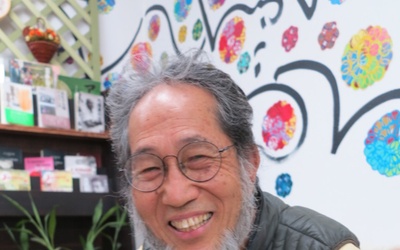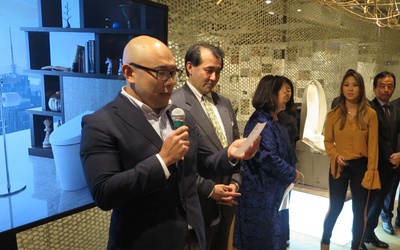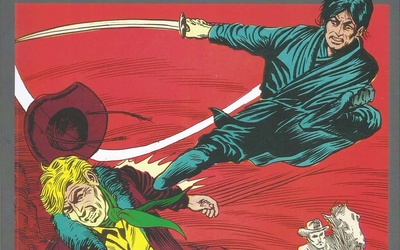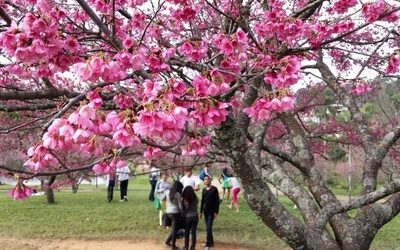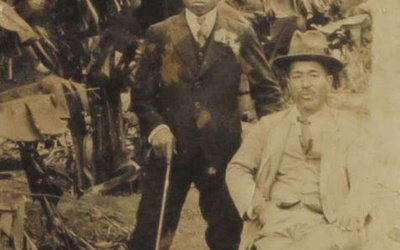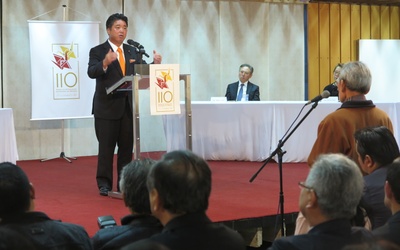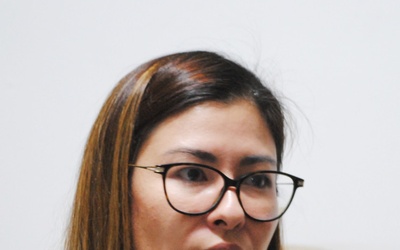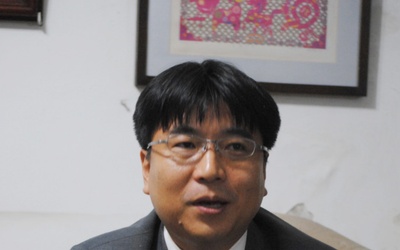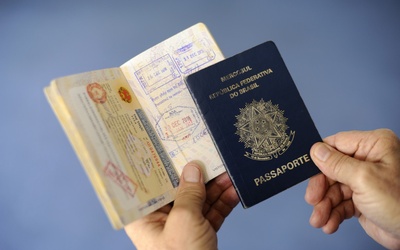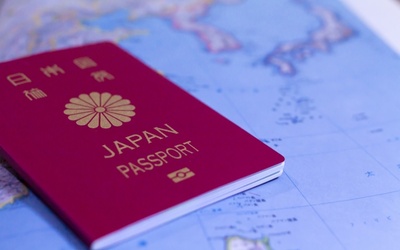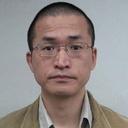
Masayuki Fukasawa
@masayukifukasawaBorn on November 22, 1965, in Numazu City, Shizuoka Prefecture, Japan. In 1992, he went to Brazil for the first time and worked as an intern at Paulista Shimbun (Japanese newspaper in Brazil). In 1995, he went back to Japan and worked with Brazilians at a factory in Oizumi-machi, Gunma Prefecture. He wrote a book, Parallel World (Ushio Publishing) about his experiences there and received Ushio Nonfiction Award in 1999. He returned to Brazil in 1999. Beginning in 2001, he worked at Nikkey Shimbun and became the editor-in-chief in 2004. He has been an editor-in-chief of Diário Brasil Nippou since 2022.
Updated January 2022
Stories from This Author
From Japan Overseas Cooperation Volunteer to Ceramic Sculptor, Moji Ochayashiki - Part 1
March 18, 2020 • Masayuki Fukasawa
After finishing the visit to the company, I casually looked at the used book section at the entrance to the editorial department, and saw the back of a man with a familiar, distinctive beard. "We have a rare visitor," I said, and it turned out to be a ceramic artist, Tetsunori Nakatani (Akinori, 76, originally from Osaka City, Osaka Prefecture), who lives in Kokuera, Moji City. "I brought this because I just published a book," said Nakatani, handing me his …
The gap between a famous Japanese businessman and a beggar who asks for forgiveness in Japanese
Oct. 30, 2019 • Masayuki Fukasawa
"Due to security issues, please don't use my name or photograph," I was told during a conversation I had just had with the Japanese-Brazilian founder of FAST SHOP, the exclusive distributor of Toto toilet seats and Washlet products, at the launch ceremony for the company's toilet seats and Washlet products, held at the Aizome restaurant in the Japan House in Sao Paulo on the evening of August 28th. FAST SHOP is a major home appliance retail chain with 101 stores …
Japanese manga guerrillas who fought against the military government for freedom of expression
April 8, 2019 • Masayuki Fukasawa
Against the Brazilian military regime (1964-1985), which controlled freedom of speech with tanks and machine guns, young Japanese people took up the weapon of manga and fought for freedom of expression. The three people who were honored on March 17th at the 35th anniversary of the Brazilian Cartoonists Association (Abrademi) were all affiliated with EDREL Publishing (Editora De Revistas E Livros). This publishing company was the first to publish Japanese-style manga in Brazil, and its core members were all second-generation …
If you make Brazil your "hometown," plant cherry trees - Nostalgia and Japanese immigrants to Brazil - Part 2
Dec. 21, 2018 • Masayuki Fukasawa
Read Part 1 >> If you want to call Brazil your "home," plant a cherry tree. For prewar immigrants, seeing cherry blossoms was a dream, as they were something only found in Japan. Seedlings and seeds of commercial crops such as pepper, jute, tea, and many vegetables had been brought to Brazil before the war, but cherry tree seedlings only began to be brought to Brazil after the war. Why was this the case? Listening to Shimada's story, I was …
If you make Brazil your "hometown," plant cherry trees - Nostalgia and Japanese immigrants to Brazil - Part 1
Dec. 20, 2018 • Masayuki Fukasawa
"It looks just like the tea fields in Shizuoka." When I went to cover the tea fields in Registro, a coastal area about 190 kilometers southwest of São Paulo, I was reminded of the scenes back home. However, it is black tea, not green tea. I heard that the raw tea leaves are the same for both green tea and black tea, but the processing process is different. That's why the tea fields are so similar. Brazil has long been …
Final Part: Possibilities for a Working Holiday Visa
Nov. 26, 2018 • Masayuki Fukasawa
Read Part 10 >> [Nagai] Oh, we haven't talked about working holidays yet... [Fukasawa] Ah, that's right, WH! [Nagai] Isn't this important? (laughs) [Fukazawa] After all, it would be a mistake to have a visa system that is only for Japanese descendants. I would like to see an agreement between the World Health Organization and Japan/Brazil to create a system that allows Brazilians who love Japan to experience Japan, and I would love to see it implemented on a scale …
Part 10: Japanese communities as a buffer zone between Brazil and Japan
Nov. 19, 2018 • Masayuki Fukasawa
Read Part 9 >> [Nagai] But I wonder why Japanese people preserve their traditions. Is it a characteristic of Asian people? [Fukazawa] It's because they are different from the European culture that is the basis of Brazilian society, and I personally think that the more discrimination there is, the more culture and community remain. Because they are discriminated against, the culture takes root and remains as a reaction to each other. I think that if the next generation of Japanese …
Part 9: The ever-increasing number of foreign workers
Nov. 12, 2018 • Masayuki Fukasawa
Read Part 8 >> Are there no Japanese people working in Japanese convenience stores? [Nagai] If you look at the statistics on foreigners in Japan, you can see that when I came to Brazil from Japan, there were about 100,000 Vietnamese people. But in the last three years, that number has increased to 260,000. That's an increase of 160,000. So when I talk to people who have returned to Japan temporarily, they say, "Even when I go to a convenience …
Part 8: The advantages and disadvantages of naturalizing in Japan
Nov. 5, 2018 • Masayuki Fukasawa
Read Part 7 >> [Nagai] That's right. So, the case of Brazil is interesting. If you're born in Brazil, you're Brazilian, right? And if you're born in Japan, you're Brazilian, right? Well, there was a time when the constitution changed and people born abroad became stateless, but now all children of Brazilian nationals become Brazilians, even if they are born in a foreign country such as Japan. In the case of Japanese people, if a child of a foreigner is …
Part 7: The "call" system as a framework
Oct. 29, 2018 • Masayuki Fukasawa
Read Part 6 >> Wouldn't it be good if Japan had a "visit visa"? [Fukazawa] That got me thinking, it seems like the majority of Japanese people already have relatives who are living permanently and settled in Japan. So I think it's possible for those people to "invite" them. And if they are the ones inviting them, then they will end up playing a role similar to that of a supporter. Even under this system, even Brazilians with "permanent resident …

